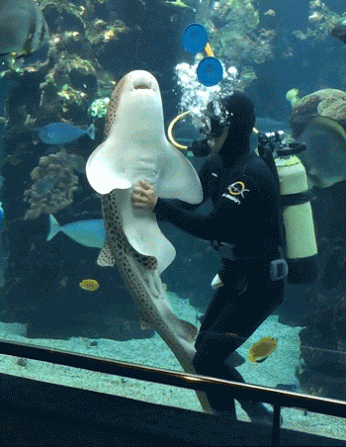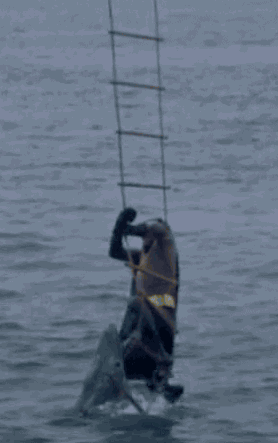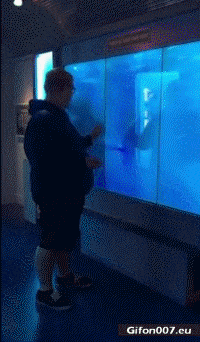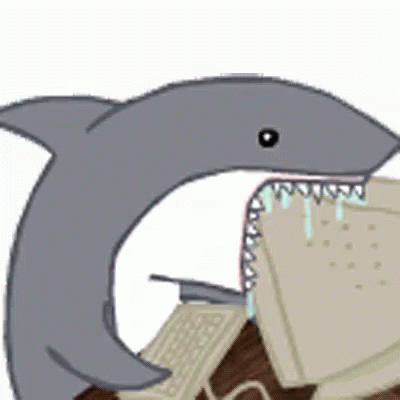KAYLEE'S LAST DAY UPDATE


This is how I'm getting to Argentina
Events
- MinneAsian Stories
- Rachleff Symposium
Call for Papers/Applications
- Ada: Issue 15, Emerging Gender, Media and Technology
- GENDER: Journal for Gender, Culture and Society. Special Issue: Parenthood and Families beyond Heteronormativity
Scholarship/Fellowship/Job Opportunities
- Multiple Positions Open with Ethnic and Religious Studies Deptartment at Metropolitan State University
Miscellaneous
- Kaylee's Message
Events
- MinneAsian Stories
Happy Asian Pacific American Heritage Month! In partnership with the CAAL MN (Coalition of Asian American Leaders) out of the twin cities and on behalf of PUSH (Project Uniting SW Hmong) as well as the Hmong community in the SW Region I would like to invite you all to attend a story telling and exhibit launch event at the Lyon County Museum in Marshall on May 18th at 6PM Doors open at 5:30PM, program starts at 6PM. Come early to view the exhibit!
CAAL MN would like to bring to us their “MinneAsian Stories” traveling exhibit from 5/18 – 5/24. The exhibit will be showcasing a series of short stories and life experiences of many Asians in Minnesota. Additional to the exhibit we will be having a live session of storytelling with local Hmong and Karen individuals. Come join us to learn more about your local neighbors! Please let me know if you have any questions!
Please register with the following Eventbrite Link!For more information and the stories, go to caalmn.org/minneasianstories. - Rachleff Symposium
The Rachleff symposium is less than one month away. Together, we will celebrate Peter Rachleff's scholarship, teaching, mentorship, and life in the struggle.
We just launched the registration page. Please register and consider donating to help "awaken all of us to the work of freedom," ESFL's motto. The registration will help us with preparation.
We thank the sponsors from our friends at the University of Minnesota, Twin Cities to help keep this symposium free and open to the public. I express my deep appreciations to Tade Okediji and Christine Powell of African American & African Studies; Elaine Tyler of History; Erika Lee and Saengmany Ratsabout of the Immigration History and Research; Jennifer Gunn and Susannah Smith of the Institute for Advanced Study, and Monica Bielski Boris of the Labor Education Service.
Call for Papers/Applications
- Ada: Issue 15, Emerging Gender, Media and Technology
More info hereSpecial Issue Editors: Audrey Gadzekpo, Paula Gardner, and H. Leslie Steeves
This special issue will address studies of gender as these operate in African environments and cultures of media and technology. We are particularly interested in contributions that address the following:
· How does power operate through gendered spaces and practices?
· What kinds of innovative gender practices are created by those working in spaces of technologies and gender?
· How does gender operate in relation to different types of technologies—from technologies of home and school to technologies of culture that women undertake in social, community, religious and other groups?
· How can we interrogate practices of masculinity inscribed in media and technology?
· In what ways is feminism called up, perhaps through other terms in research on gender and power in African spaces? How can we study how gender power operates through technologies in African contexts?
· How are key issues in the gendered realms of family, health, environmentalism, and education addressed via media and technology?
Targeted manuscript submissions: We seek all submissions that fit this special issue. We will prioritize submissions by junior and senior Africanist scholars based on the African continent.
Writing mentors/editors: We will provide a team of mentors/editors to take papers (if needed) through editing and peer review. These editors will be recruited from the Fembot Collective, FemTechNet (Paula Gardner) and from contacts provided by Audrey Gadzekpo, Leslie Steeves and others.
In keeping with Ada’s multimodality, we encourage the submission of text-based, visual, filmic, and otherwise imagined pieces as part of this issue’s theme of Emerging Gender, Media and Technology Scholarship in Africa.
You can send your proposal as an .odt or .doc document. Please put “Emerging Gender” in the subject line and include the following in the body of your message:
· Your name and a short biography
· An abstract of no more than 150 words
· A list of five keywords/tags
· Preferred email address and GPG public key (if applicable)
· Citation style used (if applicable) (please note that any citation style can be used)
Complete submissions should be sent to editor@adanewmedia.orgby September 30, 2018. Contributions should be no more than 3,000 words.
About Ada:
Ada is an online, open access, open source, peer-reviewed journal run by feminist media scholars. The journal’s first issue was published online in November 2012. Since that launch, Ada articles have received more than 500,000 page views. Ada operates a review process that combines feminist mentoring with the rigor of peer review.
Ada does not—and will never—charge fees for publishing your materials, and shares those materials using a Creative Commons License. - GENDER: Journal for Gender, Culture and Society. Special Issue: Parenthood and Families beyond HeteronormativityGENDER: Journal for Gender, Culture and Society. Special Issue: Parenthood and Families beyond Heteronormativity.In addition to the heterosexual ‚nuclear‘ family, today, parenthood and families are very diverse. For example, families headed by same-sex parents live with biological and non-biological (such as adoptive or foster) children. In queer families, gay, lesbian, bi and trans* couples often have a co-parenting arrangement to care for children. Furthermore, reproductive technologies, such as sperm donation, in vitro fertilisation and surrogacy expand the possibilities of biological genetic parenthood. New family concepts such as shared or multiple parenthood have yet to be researched as a (new) empirical phenomena. Due to an increasing social visibility and legal recognition of same-sex couple relationships as a result of marriage equality laws and reform of parental rights, a significant expansion of the possibilities of legally recognised parenthood is to be expected. Considering traditional as well as new parenting constellations and family forms, a tension arises between empirical diversity on one hand and institutional and legal norms, as well as what is socially perceived as 'normal’, on the other hand.The special issue invites scholars, especially from the fields of cultural, social, gender and legal studies, to participate in a theoretically and empirically grounded discussion of parenthood, families, and parenting beyond heteronormative kinship relations. The focus reflects on everyday family practices: How is doing family and doing reproduction realised in these families? Following from this view, accompanying ambivalences and social inequalities should be taken into consideration. New legal and political options, as well as technological possibilities, are widely used in practice. New reproductive technologies enable procreation outside of the heterosexual couple dyad and contest the idea of ‚natural conception’. Conversely, new forms of exclusion can be observed. Usually, only forms of love and partnership are legally recognised by the state if they resemble a 'normal nuclear family‘. How affective (care) relationships, e.g., in polyamorous relationships, co-parenting, and multi-parent families or queer communities, are experienced and put into practice remains a theoretically and empirically open question.Possible questions/research topics:• Familial and reproductive (every day) practices beyond the heterosexual norm• Families created by assisted reproductive technologies• Legal and social recognition of parenthood and families• Family constellations and norms (in the media)• Biopolitical regulations of reproductive medicine in (trans-)national contexts• Relationships between gender, sexuality, reproduction, and nation statesTimetable and procedurePlease submit a one- to two-page abstract by 30 June 2018. Non-German speakers are welcome to submit their articles in English. The Editorial Department works with the online editing system OJS. We would therefore like to ask you to register as an author of the journal GENDER at www.budrich-journals.de/in- dex.php/gender and to submit and upload your abstract there. Once your abstract has been assessed and judged suitable for this issue, you will receive an invitation to submit. Notifications of acceptance will be sent by 30 July 2018. The deadline for submission of the final manuscript is 1 March 2019. Manuscripts must not exceed 50,000 characters (including space characters). All submissions will be reviewed in our double-blind peer review process based on which the final selection of contributions to be published will be made. The editors may give instructions to revise the contribution, which is the rule rather than the excep- tion. In case of a high number of positively peer-reviewed contributions, the Editorial Department reserves the right to make a final selection of articles and to publish some contributions in a later issue.Do you have any questions?For further information please contact the editorial team of the special issue: Dr. Almut Peukert (almut. peukert@hu-berlin.de), Julia Teschlade, MA (julia.teschlade@hu-berlin.de)
, Prof. Dr. Christine Wimbauer (christine.wimbauer@hu-berlin. de) und Dr. Mona Motakef (mona.motakef@hu-berlin.de), Humboldt-Universität Berlin or the editorial team (redaktion@gender-zeitschrift. de). A style sheet for authors and a guideline for the use of OJS is available at www.gender-zeitschrift.de/ index.php?id=manuskripte.
Scholarship/Fellowship/Job Opportunities
- Multiple Positions Open with Ethnic and Religious Studies Department at Metropolitan State UniversityThe Ethnic and Religious Studies Department at Metropolitan State University is looking for community (adjunct) faculty candidates for several courses for 2018-2019 and beyond:ETHS 304: Environmental Justice and Public PolicyIdeal candidates would have demonstrated ability to teach fully online asynchronous preparations and/or have experience with effectively using a Learning Management System (i.e., D2L, Moodle, etc.). Metro State’s LMS is D2L Brightspace. Alternatively, the course could also possibly be offered as a real-time class; classes at Metro State meet once a week, preferably in the evenings (6:00-9:20 pm) at either the Midway or Saint Paul campus. Afternoon and morning allocations are also possible. We can also schedule at our Minneapolis campus (MCTC).ETHS 306: The Politics of Mixed-Race IdentityTypically offered as a real-time class; classes at Metro State meet once a week, preferably in the evenings (6:00-9:20 pm) at either the Midway or Saint Paul campus. Afternoon and morning allocations are also possible. We can also schedule at our Minneapolis campus (MCTC). Online preparations would be welcomed from instructors with demonstrated proficiency in online teaching.ETHS 332: Topics in Contemporary Native North AmericaTypically offered as a real-time class; classes at Metro State meet once a week, preferably in the evenings (6:00-9:20 pm) at either the Midway or Saint Paul campus. Afternoon and morning allocations are also possible. We can also schedule at our Minneapolis campus (MCTC). Online preparations would be welcomed from instructors with demonstrated proficiency in online teaching.Various courses in the Black Studies concentration:Looking for possible instructors in Black Studies for one or more of the following courses (TBD): ETHS 270: Global Blackness, ETHS 244: African Americans in Minnesota, ETHS 342: Contemporary Issues in Black America, ETHS 370: Black Thought, and ETHS 375: Black Life in Wealth and Poverty. Online preparations would be welcomed from instructors with demonstrated proficiency in online teaching.Full course descriptions can be found at: https://www.metrostate.edu/
student/course-info/course- info/course-description (Search drop down menu under Subject>ETHS - Ethnic Studies) QUALIFICATIONS: Metropolitan State community faculty must either hold a graduate degree (MA or PhD) in an Ethnic Studies-related field or interdiscipline in the Humanities or Social Sciences, OR have a minimum of 16 completed graduate credits at the time of hire in an Ethnic Studies-related field or interdiscipline in the Humanities or Social Sciences. These positions are bound by the Inter Faculty Organization-Minnesota State Master Agreement (Art. 10, §J), and are non-probationary. Previous university teaching experience is preferred, and courses are dependent on sufficient enrollment. The maximum class size at Metropolitan State is 32 students.We would be grateful if you could consider current and former graduate students or other qualified colleagues to help us staff these courses. Please direct candidates to contact me directly via email with a curriculum vitae (a cover letter is not required).
Miscellaneous
- Kaylee's Message
Today is my last day!!! I've had so much fun over the past 3 years working here and am so sad to leave. But, yo girl graduated!!! You all have touched my heart and have made my time here special in each of your own ways. I will miss you so much. I'm going to Argentina for 3 weeks for May term to finish my Spanish minor. This summer I'll be working as a boat inspector/aquatic invasive species educator and a water quality educator for the Minneapolis Park and Rec Board. Then I'll be moving to Duluth at the end of August!!! I will visit over the summer and hope to see most of you!






No comments:
Post a Comment
Note: Only a member of this blog may post a comment.